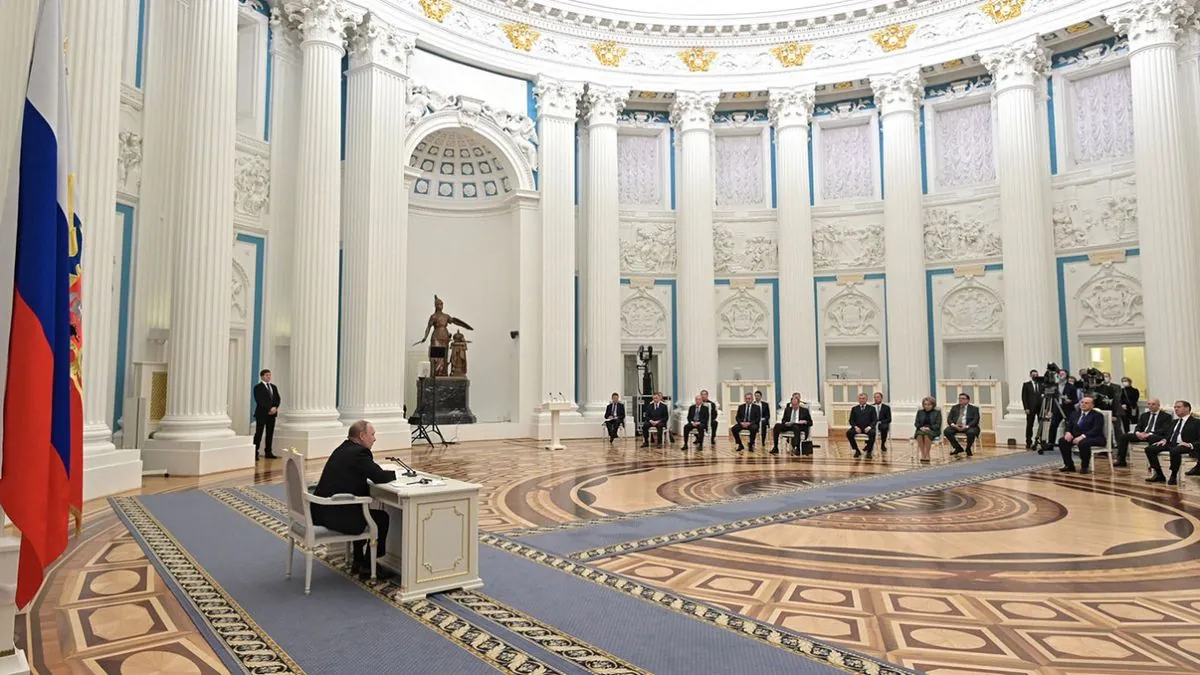Russian President Vladimir Putin has made significant changes to the composition of Russia's Security Council, appointing younger officials with strong military and defense backgrounds. This move, announced on September 30, 2024, marks a shift in the council's demographic and expertise.
The Security Council, established in 1992, plays a crucial role in formulating Russia's national security decisions. It has been a key player in major policy decisions, including those related to the Ukraine conflict that began in 2014. The council's influence has grown since constitutional amendments in 2020 expanded its role.
Among the notable appointments is Alexei Dyumin, 52, a former bodyguard to Putin and a key figure in the 2014 annexation of Crimea. Dyumin's rapid rise through the ranks has fueled speculation about his potential as a future presidential candidate. His appointment to the council follows his May 2024 designation as Putin's aide overseeing the defense industry and secretary of the State Council.
Other new appointees include:
- Alexander Linets, 61, head of the Kremlin's main directorate for special programmes (GUSP)
- Denis Manturov, 55, First Deputy Prime Minister
- Veronika Skvortsova, 63, head of the federal medical-biological agency
These appointments bring fresh perspectives to a council previously dominated by officials born in the 1950s. The GUSP, led by Linets since 2015, is a secretive agency overseeing mobilization for the president, succeeding Soviet-era directorates that managed wartime government command centers.
Manturov, promoted to first deputy prime minister in May 2024, has been instrumental in Russia's defense industry. Despite international sanctions imposed since 2014, Russia has managed to increase its artillery production at a rate that has surprised NATO allies. This achievement underscores the resilience of Russia's defense sector, which employs over 2 million people and maintains the country's position as the world's second-largest arms exporter.
The reshuffling of the Security Council comes at a time when Russia is modernizing its nuclear arsenal and adjusting its nuclear doctrine. These changes reflect the evolving geopolitical landscape and Russia's strategic priorities.
While the council welcomes younger members, it retains some of Putin's long-standing loyalists. Sergei Shoigu, born in 1955, and Nikolai Patrushev, born in 1951, remain influential figures in the council. This blend of experienced and younger officials aims to balance continuity with fresh perspectives in Russia's security apparatus.
As Putin approaches his 72nd birthday on October 7, 2024, these appointments have sparked discussions about potential succession plans. Having been in power since 1999, Putin's leadership has shaped Russia's political landscape for over two decades. The Russian Constitution, amended in recent years, allows for presidential terms that could potentially extend Putin's rule.
These changes to the Security Council underscore Russia's focus on military expertise and defense capabilities. As the country continues to navigate complex international relations and internal challenges, the newly appointed officials will play crucial roles in shaping Russia's security policies and strategic decisions in the coming years.
